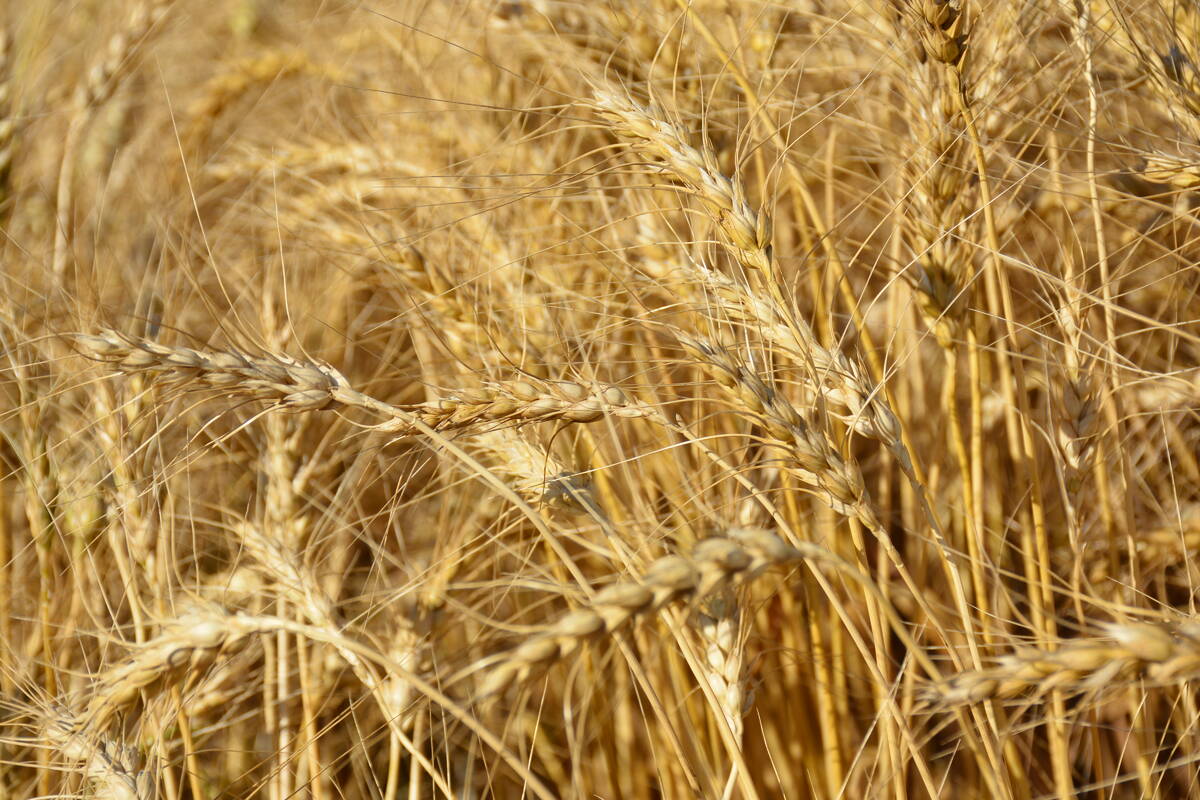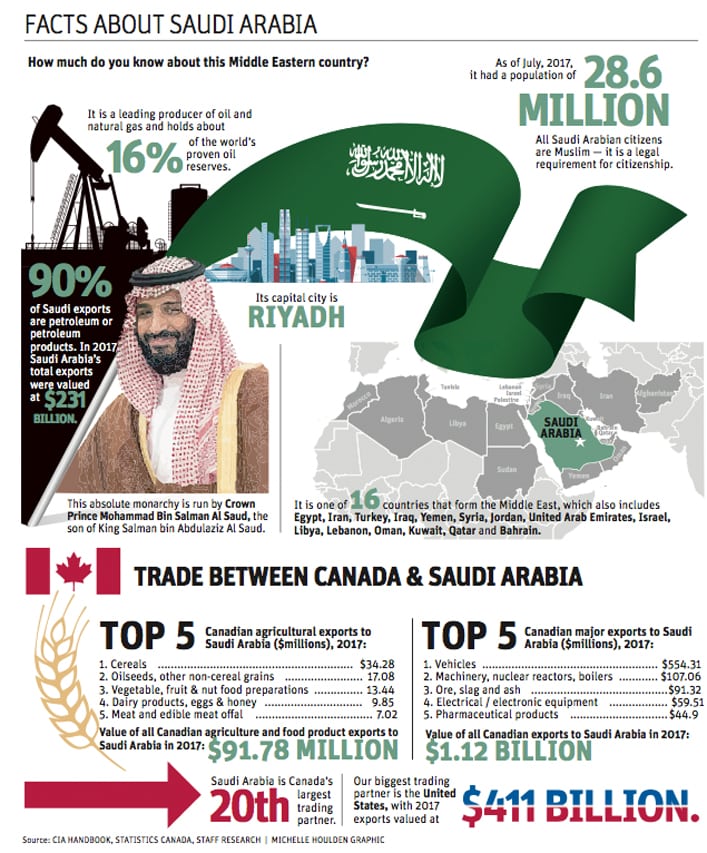Over the last five years, Jordan Van Hierden has developed business relationships in Saudi Arabia, with the goal of exporting more alfalfa, timothy hay and other forage products.
Those efforts were wiped out in a matter of minutes in early August when the federal government issued a tweet criticizing Saudi Arabia’s policies on human rights.
“As a forage market, it’s a very important market. It’s the up and coming market,” said Van Hierden, who works for Green Prairie International, a supplier of forage products based in Lethbridge. “But we just got slapped in the face by our Canadian government.”
Read Also

Large wheat supply pressures prices
World wheat prices are likely to continue falling as more bumper crops are harvested, says Arthur Portier, an anlayst and senior consultant with Argus Media.
Saudi Arabia is taking steps to suspend economic and diplomatic relations with Canada because of comments from Canada’s ministry of global affairs and minister Chrystia Freeland. In a tweet the department urged Saudi Arabia to release several women’s rights activists from jail, including Samar Badawi.
In response Saudi Arabia froze all trade with Canada, including its purchases of Canadian wheat and barley. Media reports suggest the kingdom is taking severe steps to cut economic ties with Canada, such as selling off Canadian assets “no matter the cost”, the Financial Times reported, although other reports say that has not yet happened.
So far, Prime Minister Justin Trudeau has refused to back down and apologize for the tweet.
Van Hierden manages the equine and feed division for North America and the Middle East for Green Prairie. He speaks nearly every day with his business partners in Saudi Arabia. They are frustrated with the Canadian government and Van Hierden isn’t convinced that “meddling” in Saudi Arabia’s affairs is worth the trouble.
“Some people might say it’s justified, other people might say it’s not justified,” he said. “(But) it leaves an impression with them. The people we work with in Saudi Arabia (said), ‘you guys just had to say something’. ”
Saudi Arabia is an important market for Green Prairie International and other Canadian companies that export forage because the kingdom will soon import all of its livestock feed.
“Saudi Arabia is turning their water off this year for irrigation. And they have (some of) the largest dairies in the world and the largest dairies in the Middle East,” Van Hierden said.
“We’re talking probably a market similar in size to Japan or China, which are the two big importing countries for forages.”
Green Prairie International was planning to ship much higher volumes of compressed alfalfa, compressed timothy hay and compressed, dehydrated corn silage to Saudi Arabia. Van Hierden said Canada competes mostly with Spain and the United States to sell forages to Saudi Arabia. Those competitors will likely take advantage of the diplomatic spat because the Saudis may refuse to buy Canadian feed and food for years.
“From the impressions we get … I don’t think it’s going to blow over that easily,” Van Hierden said.
Green Prairie International was planning to participate in a provincial trade mission to Saudi Arabia this fall. That trip is likely cancelled.
“Talking to Alberta government, they say that’s pretty well a no go.”

















